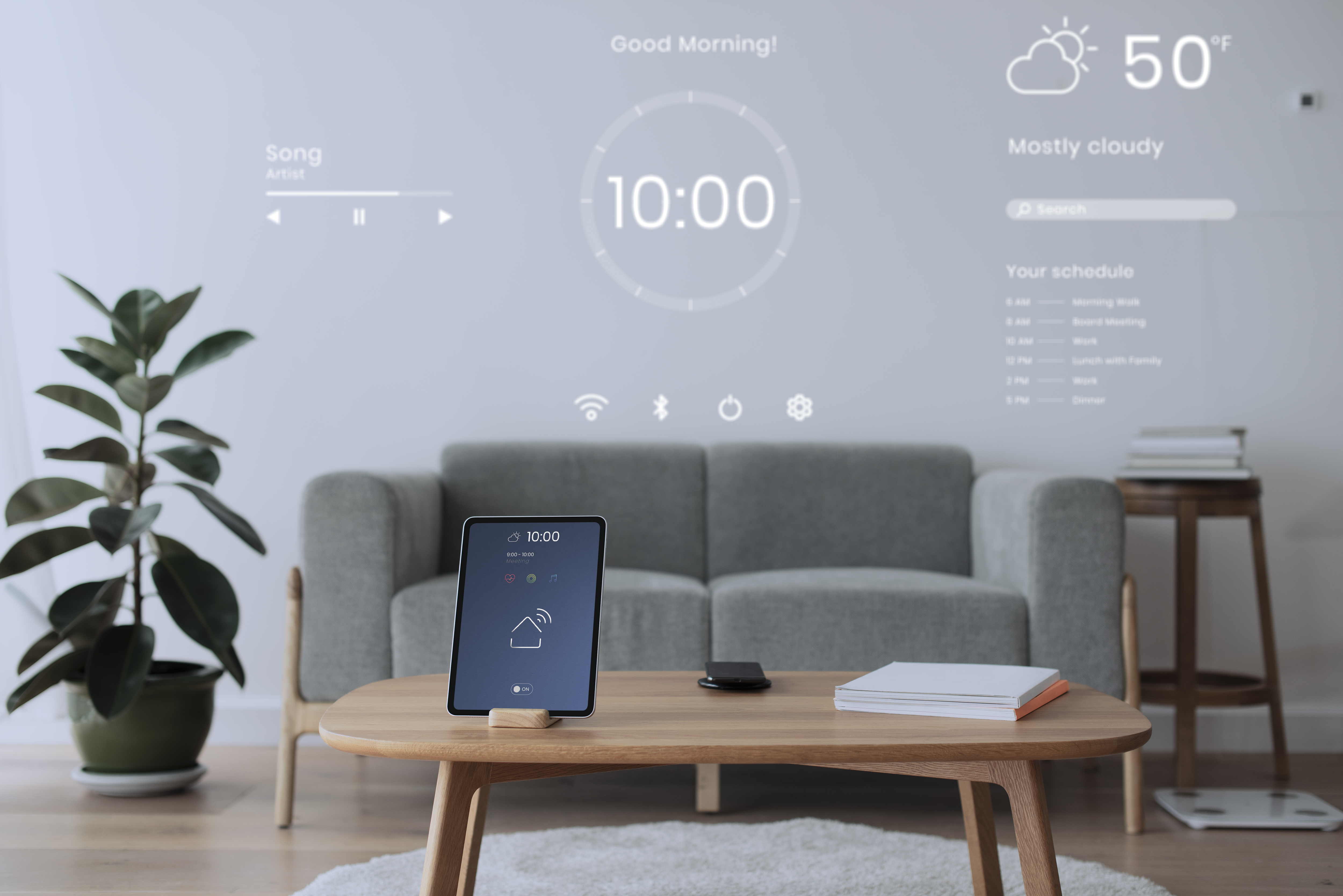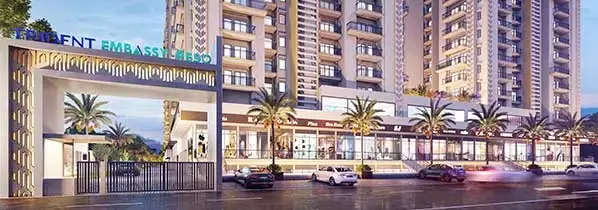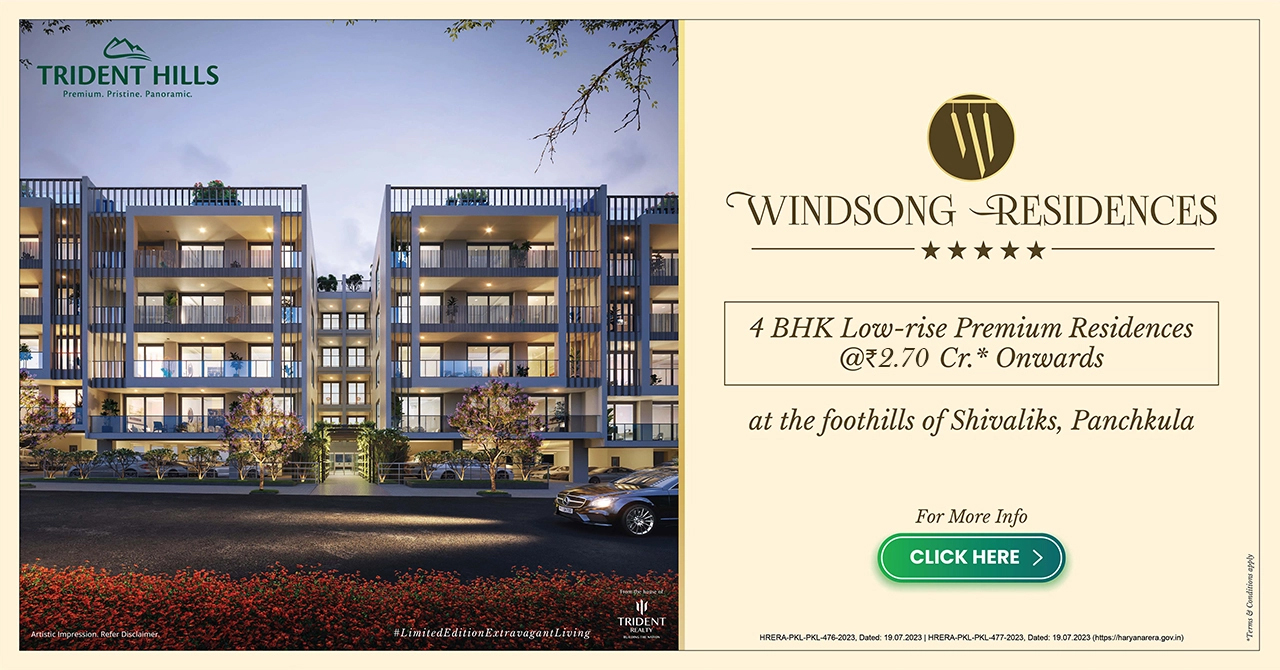
Designing for Tomorrow: Why Smart Homes Will Dominate 2030
The very definition of a premium residence is undergoing a profound transformation. Where luxury once lay purely in marble, space, and location, today it resides in intelligence, efficiency, and the unseen forces that nurture well-being. The smart home is no longer a futuristic novelty; it is rapidly becoming the essential blueprint for modern living, particularly within the discerning world of luxury real estate in India.
By the close of this decade, integrated, intelligent living systems will cease to be an added feature and will become the foundational expectation of the affluent homeowner. This shift is driven by a global narrative that marries cutting-edge technology with an unprecedented focus on personal health, sustainable living, and the frictionless experience of proper convenience. This dominance is especially pronounced in India’s dynamic urban landscape, where forward-thinking developers like Trident Realty are actively building tomorrow’s ecosystems today.
The New Definition of Luxury: Beyond Extravagance
For the globally aware, modern Indian buyer, luxury is no longer defined by extravagance but by efficacy, responsibility, and thoughtful design. Today’s aspirational class seeks homes that function as sanctuaries, not just statements. They demand home automation that doesn’t just switch off a light but creates an environment perfectly calibrated to their schedule, mood, and health.
This elevated demand is reflected in surging sales across the high-end segment. According to a 2024 JLL report, for the first time, apartments priced above INR 1 crore accounted for more than 50% of annual sales across major Indian cities, underscoring a decisive move toward premium, technology-enabled living.. This trend is amplified by a growing desire for properties with integrated services and design aligned with global best practices, a sentiment echoed by affluent investors surveyed in India Sotheby’s 2024 Report.
A true luxury home must now deliver on three core promises: predictive comfort, uncompromising security, and conscious design. Innovative technology is the invisible architect that enables all three, moving the home from a passive structure to an active, intuitive partner in the homeowner’s life.
The Digital Ascent: India’s Smart Home Market Trajectory
India is at the vanguard of this technological evolution. As per research by Next Move Strategy Consulting, rapid urbanisation, higher disposable incomes, and growing smartphone adoption are driving exponential market growth.
The projections for this decade are nothing short of phenomenal. The India Smart Home Market is projected to reach US$33.45 billion by 2030, according to Grand View Research, demonstrating a robust Compound Annual Growth Rate (CAGR) of 31.6% from 2025 onwards. This robust upward trajectory cements the inevitability of smart technology in future residential projects.
While Security and Access Controls were historically the largest segments in 2023, two other categories are driving the highest rate of growth and signifying a critical shift in buyer focus:
Home Healthcare and Assisted Living: With India’s senior population set to grow significantly, demand for remote monitoring, emergency alerts, and assisted living solutions is skyrocketing. Health Monitoring and Assisted Living applications are forecast to grow at an exceptional 30.78% CAGR through to 2030, according to Mordor Intelligence, reflecting the increasing adoption of wellness technologies as a necessity.
Energy and Climate Control: This segment is projected to expand at a 30.34% CAGR to 2030, driven by consumers seeking to balance environmental responsibility with long-term cost savings. Smart HVAC systems, automated window treatments, and real-time energy dashboards are becoming standard requirements, not just novelties.
The convergence of these trends shows that Indian luxury buyers are investing in predictive intelligence—a home that actively manages its resources, anticipates human needs, and safeguards both assets and, crucially, health.
The Holistic Home: Wellness, Sustainability, and Predictive Comfort
The ultimate expression of the smart home movement lies in its fusion with the mandates of wellness and sustainability. This is where innovation transitions from mere convenience to deep, human-centric design —a core tenet of Trident Realty’s philosophy.
Wellness-Driven Design: The Personal Sanctuary
The pandemic fundamentally reshaped our relationship with our residences, transforming them into primary workspaces, gyms, and sanctuaries.
Consequently, wellness-driven design has become a non-negotiable benchmark in the luxury segment.
The financial data underscores this emotional shift: India’s wellness real estate sector has ballooned to an estimated $13 billion in 2024 from just $6 billion in 2019, growing at an annual rate of over 20%, according to the Global Wellness Institute (GWI).
Buyers are seeking environments that actively promote longevity and balance.
Smart technology enables this health-focused environment through:
Biometric Security and Access: Facial recognition and touchless access create a seamless, yet highly secure, entryway experience.
Advanced Air Purification: Integrated air filtration and ventilation systems actively manage indoor air quality, filtering out pollutants and toxins.
Advanced water monitoring system: Smart water systems monitor consumption and purity, providing the confidence of a safe, clean environment.
Circadian Lighting Systems: Automated lighting that mimics the natural rhythms of the sun helps regulate the body’s internal clock. This translates into improved sleep quality, better concentration during the day, and reduced stress.
The Imperative of Sustainability
True luxury today is inseparable from environmental responsibility. The affluent Indian buyer is increasingly exposed to global eco-conscious trends and demands properties that reflect their commitment to the planet.
Smart homes are the cornerstone of sustainable living because they enable precise resource management. Features that were once considered ‘green add-ons’ are now essential, high-tech components of the building’s operating system:
Smart Energy Grids: AI-powered systems optimise energy use, shifting high-consumption appliances to off-peak hours or solar supply periods. Adjust high-consumption appliances like HVAC systems and geysers to operate during off-peak hours or when solar power generation is optimal. This is not only a massive cost-saving measure but also significantly reduces the home’s overall carbon footprint.
Water Conservation: Intelligent irrigation systems use local weather data and soil moisture sensors to minimise water waste in gardens and green spaces, reflecting a commitment to sustainable resource management.
Material Consciousness: Marrying technology with architecture means using low-VOC (volatile organic compounds) materials, which, combined with smart ventilation, guarantee a healthier indoor environment. This integration of design and tech is what sets premium developers apart.
The Architect of Intelligence: AI, IoT, and Automation
The magic of the modern smart home lies in the seamless, silent operation of the Internet of Things (IoT) ecosystem, all orchestrated by Artificial Intelligence (AI). This sophisticated network of sensors, devices, and communication protocols creates a truly predictive experience.
IoT devices — from smart thermostats to automated blinds and voice assistants — act as the home’s nervous system. The AI is the brain, learning the family's habits over time:
It learns that on a Monday morning, the master bedroom blinds should open at 6:45 AM, the coffee machine should start at 7:00 AM, and the car should be pre-cooled by 7:30 AM.
It monitors energy use patterns, identifying anomalous consumption immediately, and proactively alerts the homeowner to potential maintenance issues long before they become emergencies.
This predictive ecosystem transforms home management into a seamless, intuitive experience. It eliminates the frustration of multiple apps and interfaces, delivering a consolidated, customised, and intuitive lifestyle that is truly a mark of next-generation luxury.
Pioneering the Future: The Trident Realty Perspective
For developers like Trident Realty, technology integration is not a sales gimmick—it is an unwavering commitment to the brand’s core ethos. Trident Realty’s vision is built on the pillars of Customer-Centricity, Sustainability, and Well-being, values that are perfectly realised through the implementation of advanced smart home technology.
“Trident Realty’s approach moves beyond conventional automation and engineer ecosystems where technology is subtly woven into the aesthetic fabric of the home. It is about integrating security with convenience and efficiency, and elevating design, ensuring that every technological feature directly contributes to a better quality of life. This ensures our projects not only meet the highest global standards but also enhance the way our customers live, work, and interact with their exclusive space.
The 2030 Mandate: Why Smart Homes Dominate
By 2030, the shift will be complete. Smart homes in India will dominate the luxury sector because they offer the solutions that the modern affluent buyer prioritises: security, health, and a lighter environmental footprint. This is the only way to build residences that are truly future-ready.
Smart technology is the only mechanism that can harmonise the complex demands of an urban, high-stress lifestyle with the non-negotiable needs for sustainable living and physical well-being. It is the definitive marker of a life lived thoughtfully, efficiently, and responsibly.
Conclusion
The future of luxury real estate is intelligent. It is predictive. It is deeply human. As we look towards 2030, the market is poised for dominance by residences that expertly merge technology, wellness, and sustainability. This convergence defines the next era of aspirational living. Through our commitment to innovation and integrated design, Trident Realty is dedicated to building the nation’s most thoughtful and technologically advanced luxury ecosystems, ensuring a legacy of excellence for generations to come.









